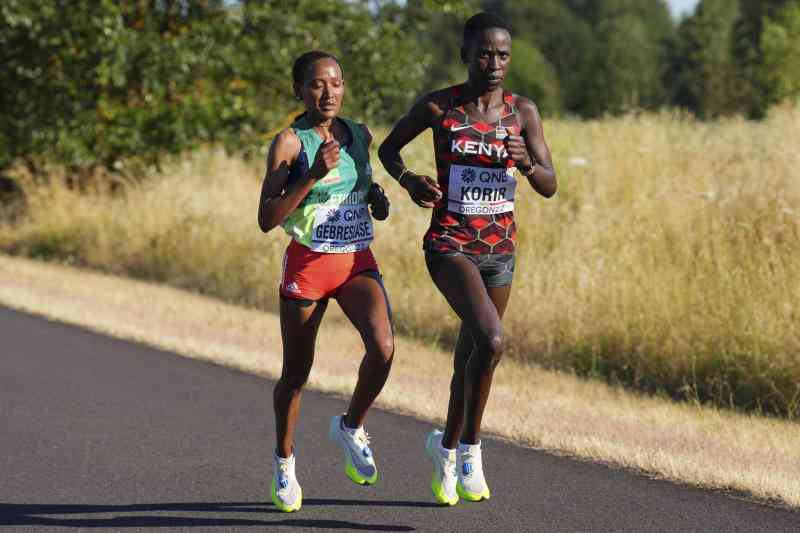The name Joe Mucheru will be on the lips of industry stakeholders in the dynamic ICT industry over the next 12 months.
Mr Mucheru, whose nomination was approved by the National Assembly last week, becomes the second Cabinet Secretary in the Ministry of Information, Communication and Technology under the new Constitution. He is not only the youngest person to head the ministry, but also the only one to have been awarded the Order of the Burning Spear for his contribution to the ICT sector.
This endorsement by former President Mwai Kibaki will be put to the test on several crucial events and projects in the country’s crowded ICT calendar for 2016. Some of the pending items awaiting Mr Mucheru include:
1. Enactment of key ICT legislation
Kenya’s ICT Ministry has had an active two years on the floor of Parliament, being at the centre of debates from security and laptop tenders to wrangles over thin-SIM cards, retrogressive media laws and a protracted digital migration feud that saw the country’s leading broadcasters shut down for nearly a month.
The trend is set to continue into the next year, as several pieces of legislation and amendments are due for debate.
These include laws on broadcasting, cyber security, data protection, infrastructure sharing, quality of service and anti-dominance. The laws will have varying levels of impact on all Kenyans.
2. Safaricom and anti-dominance legislation
The exit of France Telecom from Kenya’s telecommunications industry after years of posting millions of dollars in losses was not a surprise to industry watchers.
Nevertheless, coming just months after Essar’s yuMobile cut its losses and also exited the market, the big question now is what this means for the future of Kenya’s telecommunications industry, which is fast approaching 100 per cent mobile service penetration.
The spotlight is firmly cast on the industry regulator, the Communications Commission of Kenya (CA) and the ICT Ministry. The Government is set to receive a report from independent consultants contracted to develop anti-dominance legislation.
While the regulations have far-reaching consequences for several companies in broadcasting, telecommunications and advertising, the attention of many will be focused on Safaricom, whose meteoric growth over the past 15 years and huge impact on the ICT sector has drawn all sorts of attention.
3. Implementation of the Digital Literacy Programme
Next year gives the Jubilee government a final chance to make good on pledges it made on the campaign trail.
One of them, providing free laptops for every class one primary school child, has proven to be more challenging than the administration originally anticipated.
After its re-invention into the Digital Literacy Programme, the first phase of the project was scheduled to be kicked off next month, with the end-game being providing primary school children across the country with access to a wide range of digital learning tools and experiences.
The winning bidder(s) of the Sh17 billion tender will most likely be a consortium made up of one or more Kenyan universities, and hardware and software companies; the terms of delivery have been extended beyond the provision of laptops to digital learning material.
The project is, however, already lagging behind the tight schedule announced four months ago, as it has to go through two more months of scrutiny of bids and proof of concepts from 10 applicants to pick the winning supplier.
4. Telkom Kenya Restructuring
Telkom Kenya, the country’s oldest telecommunications service provider, is poised for a fresh start in 2016. France Telecom last month announced it had sold its 70 per cent stake in the loss-making firm to UK private equity company Helios Investment Partners.
Already, the company is set to shed a third of its 1,600-strong work force in the first quarter of next year, a retrenchment exercise targeted at turning around the company’s fortunes.
The sale, however, is already running into headwinds as Telkom owes CA and Safaricom at least Sh2 billion. The Government’s intention to increase its shareholding by another 10 per cent to 40 per cent is also likely to further delay the transaction.
5. Connected Kenya Goes to RWANDA
Every year for the last seven years, the country’s public and private sector ICT stakeholders have converged in Diani for the Connected East Africa (until this year, Connected Kenya) summit.
Next year, the summit will for the first time be held outside the country, as Kigali takes the reins on what has become the largest annual meet-up in Kenya’s ICT calendar.
While the Connected East Africa summit has received intense criticism, with an all-talk-no-action perception, the annual event has become a key networking platform, and several partnerships and projects have come from it.
Rwanda, which has become a worthy competitor in Kenya’s quest to be the region’s ICT hub, is expected to pull out all the stops for a memorable summit.
[email protected]
 The Standard Group Plc is a multi-media organization with investments in media
platforms spanning newspaper print operations, television, radio broadcasting,
digital and online services. The Standard Group is recognized as a leading
multi-media house in Kenya with a key influence in matters of national and
international interest.
The Standard Group Plc is a multi-media organization with investments in media
platforms spanning newspaper print operations, television, radio broadcasting,
digital and online services. The Standard Group is recognized as a leading
multi-media house in Kenya with a key influence in matters of national and
international interest.
 The Standard Group Plc is a multi-media organization with investments in media
platforms spanning newspaper print operations, television, radio broadcasting,
digital and online services. The Standard Group is recognized as a leading
multi-media house in Kenya with a key influence in matters of national and
international interest.
The Standard Group Plc is a multi-media organization with investments in media
platforms spanning newspaper print operations, television, radio broadcasting,
digital and online services. The Standard Group is recognized as a leading
multi-media house in Kenya with a key influence in matters of national and
international interest.






